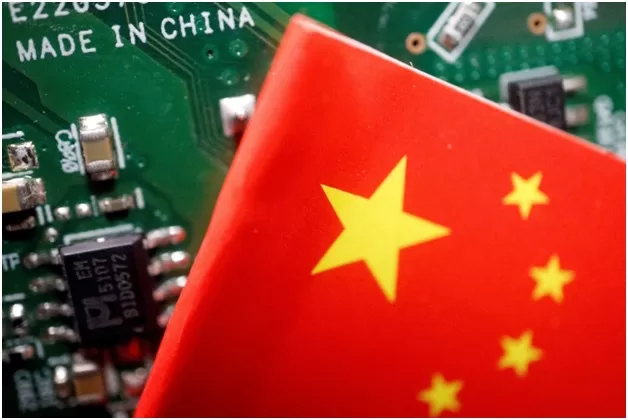Navigating the U.S.-China Tech War: RISC-V and the Global Tech Landscape

Key Highlights: U.S.-China Clash over RISC-V Technology
- U.S.-China tech conflict intensifies over RISC-V, an open-source chip technology.
- RISC-V competes with proprietary Arm Holdings tech, utilized in various applications from smartphones to AI processors.
- Lawmakers, including Senators Rubio and Warner, urge Biden administration to act due to national security concerns.
- Concerns arise over China potentially leveraging open collaboration to advance its semiconductor industry.
- Calls for Commerce Department to mandate export licenses for American companies engaging with China on RISC-V.
- This move is part of broader U.S.-China battle over chip technology, with export restrictions set to be updated.
- Huawei champions RISC-V, while Qualcomm and Google also actively participate in its development.
- Potential restrictions on American involvement in RISC-V could impact collaboration on open technical standards.
- Balancing national security interests with global tech cooperation poses a pivotal challenge for policymakers.
How Open Collaboration Faces National Security Scrutiny
In a new chapter of the ongoing U.S.-China tech conflict, the Biden administration is under pressure from lawmakers to restrict American firms from engaging in RISC-V, an open-source chip technology widely adopted in China. This move has the potential to disrupt global tech collaboration, raising concerns about national security implications.
RISC-V, an open-source alternative to proprietary technology from Arm Holdings, has found applications in a wide range of products, from smartphones to advanced AI processors. Notable figures, including Senators Rubio and Warner, are urging the Biden administration to take action, citing concerns over national security.
Lawmakers worry that China may be leveraging the open collaboration ethos among American companies to bolster its semiconductor industry, potentially eroding U.S. dominance in the field and aiding China’s modernization efforts, including military advancement.
Chairman Gallagher emphasizes the need for the Commerce Department to mandate export licenses for American entities engaging with Chinese counterparts on RISC-V technology. These calls signal a significant effort to regulate U.S. involvement with RISC-V.
This push for regulation is the latest development in the U.S.-China battle over chip technology, which escalated last year with extensive export restrictions. The Biden administration has informed China of upcoming updates to these restrictions.
Representative McCaul underscores the need for action from the Bureau of Industry and Security, with potential legislation in pursuit if needed. The bureau continually evaluates the technology landscape and threat environment, adapting export control policies to safeguard national security.
Senators Rubio and Warner express concerns about China’s use of open-source chip architecture to circumvent sanctions and bolster its chip industry. They call for an expansion of export controls to counter this evolving threat.
RISC-V, overseen by a Swiss-based nonprofit foundation, draws parallels to other freely available technologies like Ethernet and USB, enabling global contributions for faster and more cost-effective innovation.
China’s Huawei Technologies has embraced RISC-V as a cornerstone of its chip development progress. Meanwhile, U.S. and European companies, including Qualcomm and Google, are also actively engaged in RISC-V initiatives.
Potential restrictions on American companies’ involvement in the Swiss-based foundation could complicate collaboration between American and Chinese firms on open technical standards. It may also pose challenges for China’s chip self-sufficiency goals and hinder efforts to create more affordable and versatile chips.
As discussions turn towards regulating open technologies, export-control attorney Kevin Wolf suggests that existing rules on chip exports could provide a legal framework for such proposals.
In conclusion, the RISC-V debate represents a critical juncture in the U.S.-China tech dynamic, with far-reaching implications for global tech cooperation, national security, and the future of chip innovation. Balancing these interests will be a pivotal challenge for policymakers moving forward.















